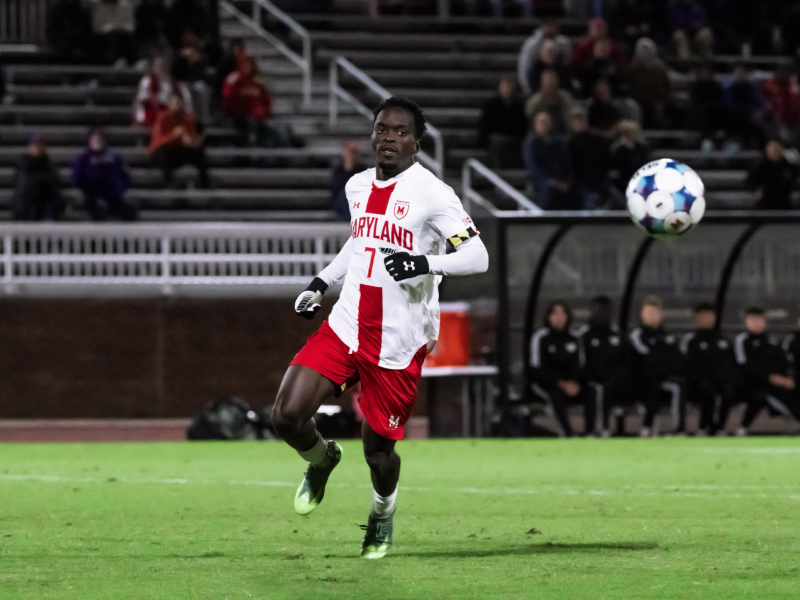After more than two dozen students signed a petition demanding changes to the Arabic department in response to recent reforms that students said resulted in a weaker program, administrators decided last night to listen to what these students had to say.
Although emotions ran high throughout the meeting, which was held in St. Mary’s Hall, students and faculty said hearing both sides was a significant step in ensuring the program progresses in a direction both constituencies can agree on.
Much of the disagreements outlined in a petition signed by 30 students (as of last night) hinged on changes made to the Arabic department since Valerie Anishchenkova took over as head of the department this semester. The students, who dubbed themselves Students for Reason in the Arabic Department, outlined their concerns in the petition, which was presented at last night’s meeting: Directors imposed a standardized curriculum on faculty with little room for flexibility; the one-on-one, three-hours-a-week language partner program was replaced by a one-hour-a-week group session; and all of the department-supported clubs are gone. When three Arabic professors left the department mid-semester — one was dismissed and two resigned — students’ concerns came to a head.
For some students, such as junior Arabic studies and government and politics major Sehar Sabir, the changes came all at once.
Sabir said the Arabic program had been “close-knit community and family” when she left to study abroad in Egypt last semester, but when she returned, everything had changed, she said.
“They’re just sucking out all of the culture from the department,” Sabir said. “They’re making us only focus on the language when we really should be focusing on the culture. It’s really difficult to get what we want out of it. What we used to love is not there anymore.”
These opinions, among others, were shared with several faculty members who stayed after hours to discuss students’ concerns in a closed meeting last night. Several students at last night’s meeting also rose to the defense of the department, disagreeing with the petition and blaming students’ criticisms on ill feelings and grade disputes.
“It was more intense and emotionally charged than I expected,” junior Arabic studies major Maryam Elbalghiti said. “It’s good there was open dialogue, but things boiled over a bit.”
Carol Mossman, director of the languages, literatures and cultures school, said she was impressed by the discussion, particularly at how students were able to negotiate their different opinions among themselves.
“It was fantastic,” Mossman said. “The students were very eloquent and articulate, and there were many students who were very happy with the Arabic department. … We saw there were some areas that may need to be changed, and we are certain to look at that.”
Mossman and Anishchenkova, who was also present, said some of the students’ concerns had already been addressed, and an optional one-on-one language partner would begin at one hour a week and clubs would be reinstated next year.
Although most attendees agreed the open forum helped move things along, some remained unsatisfied with the state of the department.
“They kept mentioning growing pains, like, ‘We’re only going through growing pains,'” said junior Arabic studies and government and politics major Kiya Mirmozaffari, one of the founding members of Students for Reason in the Arabic Department. “But when you have growing pains, you don’t lose what you already had.”
One issue that was not raised during the meeting was personnel losses. Sophomore Arabic studies and Spanish major Kevin Butts and Mirmozaffari said they were disturbed after faculty research assistant Ridha Krizi was dismissed in late August with no explanation. Then program coordinator Roula Abousaleh resigned mid-semester, followed by lecturer Tony Rahi.
Butts and Mirmozaffari said they and many other students were extremely fond of Rahi, describing him as someone who took students into his own home and taught them one-on-one at no charge.
“He was the best teacher I ever had,” Butts said.
“How can you lose a teacher like that?” Mirmozaffari added. “We know there are departmental problems. The question we have to address is why all these teachers left in the middle of the semester. You don’t have that happen if everything is all right.”
In the end, students and faculty said, what came out of the meeting was opening up a dialogue within the department’s community.
“I think we all felt great now that we had the chance to talk,” Mirmozaffari said. “It’s making sure our voices don’t fall off now that we have used them this once.”
And that’s something that may continue: Students and directors have begun considering holding regular meetings between students and faculty.
For students like Mirmozaffari, knowing administrators were aware of student dissatisfaction was enough — for now.
“I don’t know if they listened,” Mirmozaffari said. “But I think they feel the pressure to feel responsible for this. … We’re just worried about making sure this is the best program that it can be.”
villanueva at umdbk dot com


